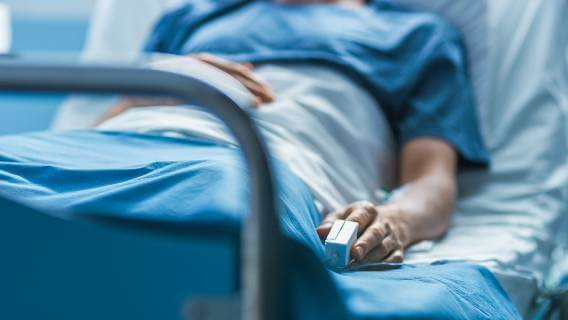Mesothelioma Survivor Shares His Lung Removal Surgery Story
Stories from SurvivorsWritten by Michael Cole | Edited By Walter Pacheco

After being diagnosed with pleural mesothelioma in 2015, I underwent an extrapleural pneumonectomy. I wanted to share my experiences with recovery for others who might be considering this surgery.
Upon waking, a person who has had an extrapleural pneumonectomy for pleural mesothelioma will find many things have changed drastically between then and the time they were put to sleep. The body will have many tubes inserted, some with fluids going in, some with fluids going out. There may be extensive bloating due to the large volumes of liquid in the body. This condition will improve over a few days.
Pain will be minimal at first, as the aftereffects of anesthesiology and the strong pain medicines employed will be holding the pain in check. Epidurals may be used along the line of incision. Pain will increase, and pain management will become a greater factor, as medicines are changed and reduced.
Position is critical, as you will find it possible to breathe only in certain positions. The care team must be mindful of this at all times and respond if the patient begins to signal or show signs of panic. You may not be able to verbalize if you have problems breathing. This will become less of a problem as you gain back your mobility. However, it can still be a problem when you are sedated or asleep, so your breathing should be watched carefully. This especially becomes a factor when wounds are being dressed and you are moved into various positions to facilitate that process.
Managing Pain and Breathing Post-Surgery
As feeling returns, it will be more difficult to find positions that give hurting parts of the body relief and still allow you to breathe comfortably. Multiple pillows, both in the hospital and after you return home, are very helpful in allowing you to hold a comfortable position. At home, pillows of multiple sizes and shapes, even those designed for pregnancy, can be a significant help.
You may become aware of pressure inside the body different from anything you have experienced before. This sensation of different kinds of pressure in the body cavity, sometimes a sensation of pulling inward and other times a sensation of pushing outward from the core, may even become an ongoing phenomenon long after the surgery. It may also be associated with tremendous pain at some point shortly after the surgery as some of the internal structures of the body are pushed and pulled into new positions. This may occur after you have left ICU, and pain control can be an issue.
Your abdomen might protrude noticeably on the surgery side after the procedure, and this is normal. You will be largely dependent upon your caregivers at home for several weeks after surgery. Pain management, exercise, nutrition, breathing and bowel movements must be monitored and managed carefully according to instructions from the professional care team.
It’s possible when recovering from EPP surgery that you will have little self-motivation as the body appears to put all its energy into healing itself. The situation will improve, and after a few weeks you will be able to carry more of the load yourself.
With time, it is possible to recover most of one’s abilities, although with a few limitations. Don’t lose hope, and never give up!




